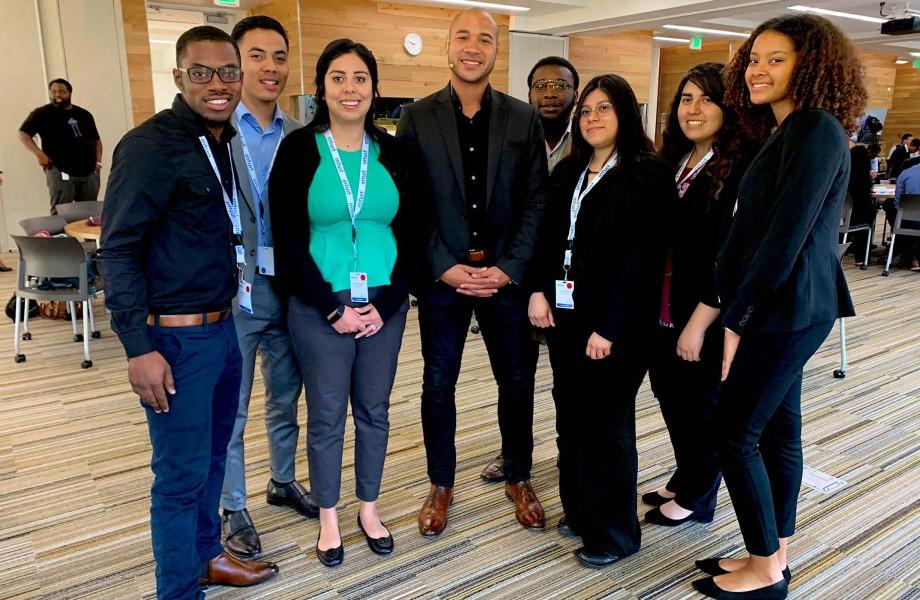Walmart.org Center for Racial Equity Update: Creating Career Pathways through Education
By Patti Constantakis, PhD

Education means something different to everyone. Being part of a family of educators, early on, I understood that education can open doors to opportunity. But growing up in a mixed-race family on the U.S.-Mexico border, I also saw firsthand the numerous barriers to opportunity within the education system – particularly for Black and African Americans. And for the working adults around me, those barriers were even bigger. As a society, we have not paid enough attention to such barriers and the factors that hold people back. Finding ways to improve the system is a big part of what inspired my lifelong career in adult education and workforce development. And it is also why I jumped at the opportunity to lead the Walmart.org Center for Racial Equity’s philanthropic work focused on education.
Walmart’s support for education has a long history, but our current focus started in 2015. The company has invested in education and training for our associates through Live Better U and Walmart Academies, for example. Our focus on upskilling associates is rooted in our commitment to shared value – our view that we create value for our business by serving our stakeholders, including our associates and our communities. After all, building a stronger workforce is good for both business and society. We have complemented these efforts with philanthropy that supports equity through on-the-job learning and a skills-based education system for adult workers.
When Walmart and the Walmart Foundation established the Walmart.org Center for Racial Equity in June 2020, we took a more critical look at the realities of the education and workforce systems for Black and African Americans. Together with Walmart’s education shared value network (a team of business leaders and associates working to find ways to use Walmart’s business capabilities to advance equity in education), we surfaced three opportunities for philanthropy: First, research to gain deeper insight into specific barriers facing Black and African American people within the education and training system; second, building capacity within our nation’s historically black colleges and universities (HBCUs) to support students; and third, strengthening the pathways between college and in-demand careers.
So today we’re announcing $3 million in grants in these three areas:
A Walmart grant will support the Joint Center for Political and Economic Studies, a think tank dedicated to research and advocacy to equip Black and African Americans with the skills needed to thrive in the evolving economy, to conduct research on the barriers and gaps that exist within education and training for economic advancement. This research will provide insight on why education pathways, such as college and industry certifications, have not served as effective on-ramps to employment for Black and African Americans, particularly in high-demand jobs like technology and health care.
As we work to gain a deeper understanding of the needs of Black and African American students, a second investment will help build the capacity of our nation’s 1890 land-grant universities – HBCUs established through the Morrill Land Grant Act of 1890 with a focus on agriculture and technology. A Walmart grant will support the 1890 Universities Foundation, which will build staff capacity to prepare students for careers in fields such as agriculture, healthcare and technology via four Centers of Excellence across the 19 institutions. The 1890 Foundation will also develop a broadband strategy to meet the needs of the universities.
Finally, through a third Walmart grant, we aim to help strengthen the pathways for Black and African American students between college and in-demand careers in fields such as technology. A Walmart investment in CodePath, which aims to increase diversity in tech by transforming college computer science education, creates a partnership with the 1890 Universities Foundation to serve more HBCUs with an initial expansion of CodePath’s computer science and technology courses to five of the 19 universities. With this support, CodePath will also expand its mentorship, technical interview practice and pre-internship services for students.
It’s time for us to think differently about how we support Black and African Americans as they pursue post-secondary educational opportunities and begin their careers. Going forward, we want to further focus our philanthropy to shift the system so more Black and African Americans get a degree or credential, enter the workforce and create a stronger, more diverse talent pool for everyone. Education may mean something different for everyone, but our aspiration at the center is that it means equitable opportunity and advancement for all.

